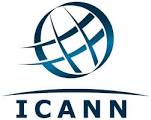 ICANN announced the implementation of amended rules for the Uniform Domain Name Dispute Resolution Policy (UDRP). These 7 amendments to the UDRP rules were designed to reduce the risk of cyberflight during a UDRP proceeding.
ICANN announced the implementation of amended rules for the Uniform Domain Name Dispute Resolution Policy (UDRP). These 7 amendments to the UDRP rules were designed to reduce the risk of cyberflight during a UDRP proceeding.
One important amendment for Respondents is that they may request an additional four (4) calendar days to respond to a complaint and UDRP providers will automatically grant the extension, if requested.
These new requirements will take effect and will be enforced by ICANN as of 31 July 2015. All ICANN-accredited registrars are required to comply by this date.
UDRP
The UDRP is a consensus policy that is applicable to all ICANN-accredited registrars. The updates include:
- “Lock” and “pendency” are now defined terms in the UDRP Rules;
- UDRP complainants no longer have to transmit a copy of the complaint to the respondent (rule 3(b)(xii));
- Rule 4(b) requires registrars to lock the disputed domain name(s) within two (2) business days of receiving a UDRP complaint from a UDRP provider;
- Rule 4(e) provides that when a UDRP provider informs the registrar that the UDRP proceeding has been withdrawn or dismissed, the registrar must remove the lock within one (1) business day of receiving notice;
- Rule 5(b) provides that respondents may request an additional four (4) calendar days to respond to a complaint and UDRP providers will automatically grant the extension, if requested;
- Rule 16(a) provides that registrars must notify the parties, the provider and ICANN of the date for implementation of the decision within three (3) business days of receiving the decision from the provider;
- Rule 17 outlines a new procedure to be used in cases that are settled between parties outside the UDRP case.
A link to a redline version of the amended UDRP Rules can be found here: http://www.icann.org/en/system/files/files/udrp-rules-redline-24sep14-en.pdf [PDF, 204 KB]
Background
On 23 September 2013, the ICANN Board adopted the GNSO Council Policy Recommendations on the Locking of a Domain Name subject to UDRP Proceedings as set forth in the Final Report (see http://gnso.icann.org/en/issues/locking/domain-name-final-05jul13-en.pdf [PDF, 1.01 MB]).
The Generic Names Supporting Organization (GNSO) unanimously approved at its meeting on 1 August 2013 the recommendations of the Locking of a Domain Name subject to UDRP Proceedings PDP Working Group. The 17 recommendations are intended to clarify and standardize the process for locking of a domain name subject to UDRP Proceedings, including:
- Definition of “locking”
- Requiring registrar to apply lock within 2 business days following request for verification
- Removing obligation for complainant to notify the respondent at the time of filing, but add automatic extension of 4 days to response time upon request
- Step by step clarification of requirements of different parties involved
- Development of educational and informational materials to assist in informing affected parties of new requirements and recommended best practices
Following ICANN Board approval, an Implementation Review Team (“IRT”), comprised of GNSO Working Group members, was convened and worked with ICANN staff in drafting the amended UDRP Rules. ICANN staff held regular meetings with the IRT to ensure that the recommendations were implemented in accordance with the Working Group’s intent.
 OnlineDomain.com Domain Name News & Opinions
OnlineDomain.com Domain Name News & Opinions


 OnlineDomain.com - © Copyright 2012-2026 - All Rights Reserved
OnlineDomain.com - © Copyright 2012-2026 - All Rights Reserved
“UDRP complainants no longer have to transmit a copy of the complaint to the respondent (rule 3(b)(xii));”
So the respondent can’t see the complaint in order to prepare his/here defense?
Can registrars still be allowed to charge a fee for locking a domain name in UDRP dispute?
The respondent will get the complaint directly from the UCRP provider only.
Now you are supposed to get it from both the complainant and the provider.
Registrars were never explicitly allowed to charge a locking fee.
But they are not forbidden too. Go Daddy does it just because it can.